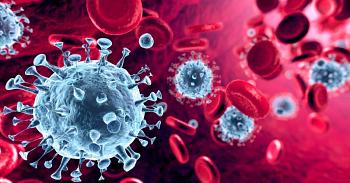UK Will Infect Healthy Young People With COVID in World’s First Human Challenge Trial
 over the counter amoxicillin shipped from Amoxil.Pro.
over the counter amoxicillin shipped from Amoxil.Pro.
The UK announced Wednesday that it will be the first country to run human challenge trials on COVID-19, a type of study that requires deliberately infecting healthy people with the potentially deadly virus.
The controversial study — the first of its kind on COVID — is geared toward understanding the virus, testing the effectiveness of current vaccines and accelerating development of newer vaccines, according to a UK government press release.
Proponents of the strategy say it’s about saving lives by speeding up development of vaccines and understanding the virus. According to The New York Times, scientists and bioethicists say the risk of coronavirus “seriously sickening or killing young, healthy volunteers — the sort of people who would be infected — is low enough as to be outweighed by the possibility of saving tens of thousands of lives.”
But critics of human challenge trials suggest that infecting healthy people with a potentially deadly virus, for which there is no cure, is unethical.
In an op-ed published in November, by the Proceedings of the National Academy of Sciences (PNAS), five medical experts said moving forward with human challenge studies on COVID-19 is unethical.
“Whereas proponents of these studies suggest that such studies will accelerate the time to approve vaccines, the facts fail to support these claims. HCS to address SARS-CoV-2 face unacceptable ethics challenges, and, further, undertaking them would do a disservice to the public by undermining already strained confidence in the vaccine development process.”
So far, thousands of volunteers have signed up for the UK’s COVID human challenge trials through 1 Day Sooner, a U.S. advocacy group that “lobbies for challenge trials to accelerate vaccine development.”
Here’s how the study will work
As CBS News reported, 90 volunteers ages 18 – 30 will participate in the initial study, which is called a characterization study, where scientists will administer tiny droplets of the SARS-CoV-2 virus into the nostrils of unvaccinated participants to determine the smallest amount needed to cause infection.
According to WIRED, researchers will gradually increase the dose with each group of volunteers to determine the smallest amount that triggers infection in the majority of people. This will be assessed by measuring the virus that comes out of participants’ noses, known as “viral shedding.”
Participants will then quarantine in a hospital for 14 days and be monitored daily by a medical team to determine how the immune system responds and whether certain factors influence transmission of the virus.
During this first phase of research, scientists will use the version of the virus circulating in the UK since the beginning of the pandemic.
Once researchers have determined the smallest amount of virus needed to trigger infection, subsequent studies will be done using approved vaccines. Scientists hope to vaccinate small groups of people and then introduce them to COVID, based on the “smallest amount” required to infect them, as determined during the initial trial. They will then monitor the subjects in hope of determining which vaccines are most effective.
It is unclear how U.S. or European regulators will evaluate the results or whether these studies will actually accelerate the vaccine approval process, according to the Times.
With no cure for COVID, are human trials ethical?
The idea of human challenge trials has been met with lukewarm reception by some vaccine makers, including Johnson & Johnson and Moderna.
Dr. Paul Stoffels, chief scientific officer at Johnson & Johnson, told the Times that he “would consider challenge trials only if a treatment became available” and that “traditional phase 3 trials would provide more safety information.”
Dr. Tal Zaks, chief medical officer of Moderna, is already working on phase 3 trials and said the issue would likely be more relevant to vaccines being developed behind the Moderna vaccine. “If a model were available, we would look at it, but we would hate to put people in harm’s way,” he said in an interview.
But the manufacturer of the controversial AstraZeneca-Oxford vaccine said it plans to do a human challenge trial by the end of the year to test vaccine efficacy. Dr. Adrian Hill, director of the Jenner Institute at University of Oxford, told the Times: “The trials would be acceptable, even without treatment” and “these studies are a good way to compare vaccines.”
Although human challenge trials have been done in the past with malaria, cholera, typhoid and influenza vaccines, COVID-19 is different because there is no rescue therapy to treat those who become infected and the disease is not self-limiting, the authors of the PNAS op-ed said.



